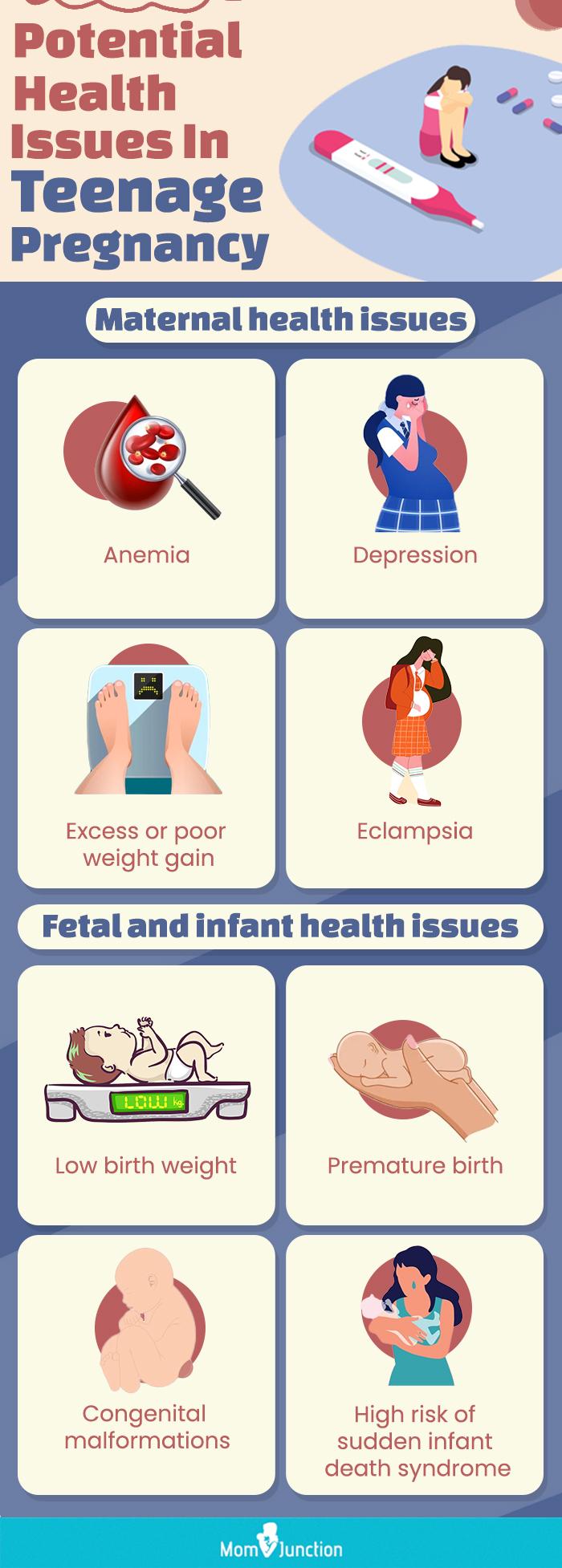
Physical and Emotional Effects of Teen Pregnancy
Teen pregnancy, defined as pregnancy occurring in females between the ages of 13 and 19, poses significant physical and emotional challenges for both the mother and the child. Understanding these effects is crucial for implementing effective prevention and support strategies.
Physical Effects on the Mother
- Increased Risk of Preterm Birth and Low Birth Weight: Teen mothers are more likely to deliver prematurely, which can lead to health complications for the infant. Low birth weight is associated with an increased risk of developmental delays and chronic health conditions.
- Pregnancy-Induced Hypertension (PIH): Teen mothers have a higher risk of developing PIH, a condition characterized by high blood pressure during pregnancy. PIH can lead to serious complications, including preeclampsia and eclampsia.
- Anemia: Teen mothers often have lower iron stores, increasing their risk of anemia during pregnancy. Anemia can cause fatigue, shortness of breath, and impaired cognitive function.
- Nutritional Deficiencies: Teen mothers may have inadequate intake of essential nutrients, such as calcium, iron, and folic acid. These deficiencies can affect the mother’s health and the baby’s development.
- Increased Risk of Sexually Transmitted Infections (STIs): Teen mothers are more likely to have multiple sexual partners and engage in unprotected sex, increasing their risk of acquiring STIs. STIs can have serious consequences for both the mother and the baby.
- Delayed Physical Development: Teen mothers may experience delayed physical development, including slower growth and bone maturation. This can affect their overall health and well-being.
Emotional Effects on the Mother
- Depression and Anxiety: Teen mothers are at an increased risk of experiencing depression and anxiety during and after pregnancy. These conditions can interfere with their ability to care for themselves and their child.
- Low Self-Esteem: Teen pregnancy can lead to feelings of shame, guilt, and low self-esteem. These feelings can persist long after the pregnancy and affect the mother’s relationships and overall well-being.
- Social Isolation: Teen mothers may face stigma and rejection from their peers, family, and community. This can lead to social isolation and feelings of loneliness.
- Educational Disruption: Teen pregnancy often interrupts the mother’s education, which can have long-term consequences for her career and economic opportunities.
- Increased Risk of Substance Abuse: Teen mothers are more likely to engage in substance abuse, including alcohol and drug use. Substance abuse can further compromise their health and well-being.
Effects on the Child
- Preterm Birth and Low Birth Weight: Children born to teen mothers are more likely to be born prematurely and have low birth weight. These conditions can lead to developmental delays, learning disabilities, and chronic health problems.
- Increased Risk of Infant Mortality: Infants born to teen mothers have a higher risk of dying in the first year of life. This risk is associated with preterm birth, low birth weight, and inadequate prenatal care.
- Developmental Delays: Children born to teen mothers may experience developmental delays in areas such as language, motor skills, and cognitive abilities. These delays can affect their academic performance and social development.
- Behavioral Problems: Children born to teen mothers are more likely to exhibit behavioral problems, such as aggression, hyperactivity, and conduct disorder. These problems can interfere with their relationships and academic success.
- Increased Risk of Child Abuse and Neglect: Teen mothers may be less prepared for the responsibilities of parenting and more likely to experience stress and financial difficulties. These factors can increase the risk of child abuse and neglect.
Conclusion
Teen pregnancy has profound physical and emotional effects on both the mother and the child. Understanding these effects is essential for developing comprehensive prevention and support programs. By providing access to quality education, healthcare, and social services, we can help reduce the incidence of teen pregnancy and improve the outcomes for both mothers and children.